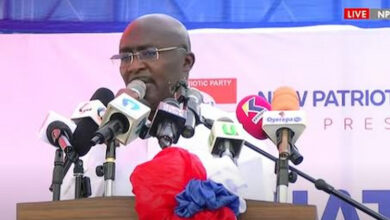‘24-hour economy cannot be implemented in 20 years’ – Assafuah mocks Pres. Mahama

Member of Parliament for Old Tafo, Vincent Ekow Assafuah, has questioned the feasibility of the government’s flagship 24-hour economy policy, dismissing it as unrealistic and unachievable.
According to him, the initiative was nothing more than a political slogan and cannot be implemented by the current administration even if given twenty (20) years.
Speaking in an exclusive interview with Pulse Ghana, the lawmaker argued that the 24-hour economy must be grounded in a solid economic framework. He criticised the government for failing to present any practical plan for implementation, despite being in office for nine (9) months.
ALSO READ: Gbiniyiri Clashes: Interior Minister constitutes 7-member mediation committee

Mr Assafuah stated:
We said it was about creating an enabling environment where young people can access soft loans, benefit from reduced taxes, and freely run their businesses. But we are not seeing any of that.
He questioned further:
The government keeps telling us about the 24-hour economy, that one job will now be shared among three people. But as we speak today, in the ninth month, show me in the budget where this policy has been rolled out. Has one job been given to three young people in this country? Do they even have a plan to make this work?
ALSO READ: Azumah Resources denies reported takeover of Black Volta and Sankofa projects by E&P

President John Mahama
Delivering a scathing assessment of the government’s performance, Mr Assafuah concluded:
Today, there are no concrete plans. Even if you gave them twenty years, they cannot implement it. I am not a doomsayer, but the 24-hour economy does not lie in the mouth of government. It requires real action, not promises.
The 24-hour economy, according to government, is designed to maximise Ghana’s human and economic potential. The vision includes factories operating throughout the night, ports processing cargo round the clock, and public services such as passport offices and customs centres working without interruption.
ALSO READ: The Blood Moon of September 2025: Why Many Missed It and When to Expect the Next One
Incentives such as tax breaks, reduced electricity tariffs during off-peak hours, and financial support for manufacturing and agro-processing are expected to attract businesses to adopt this new model.
Full Interview Here:




